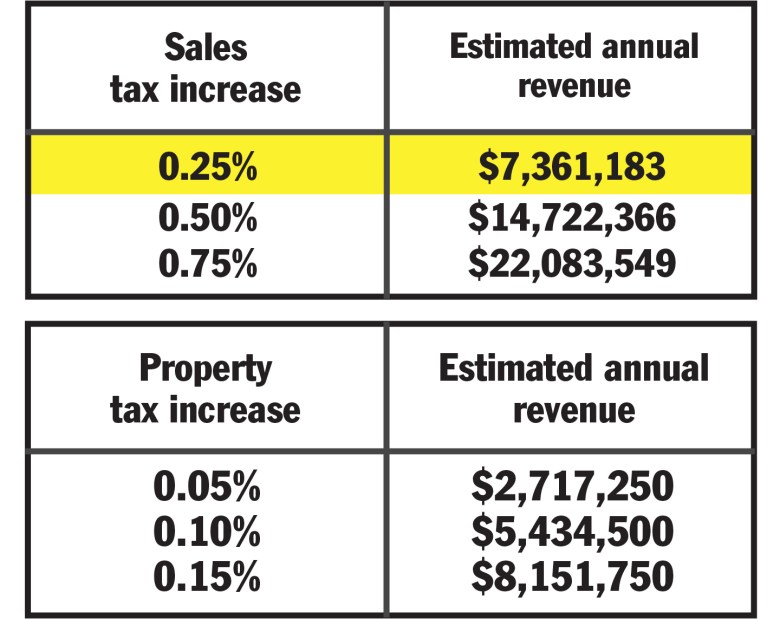A second commission formed by the Sangamon County Board has run its course, with the Sangamon County Mental Health Commission wrapping up its final meeting on Nov. 5 – one week after the Massey Commission held its final public meeting.
The Mental Health Commission unanimously voted to approve language for a March referendum asking Sangamon County residents if they would approve a half-percent sales tax increase (an additional 5 cents per $10 of goods purchased, 50 cents per $100) to fund a county mental health board that would disburse such taxes toward various mental health initiatives. The tax would not be included on grocery or medication purchases. If approved, the tax would generate more than $14 million for a mental health board, according to county estimates.
Mike Murphy, president and CEO of The Greater Springfield Chamber of Commerce, chaired the commission and presented its findings to the County Board on Nov. 10, along with the commission publishing its final report, which includes additional recommendations for instituting a mental health board.
“The message we heard was consistent and clear: our community is asking for stronger, more coordinated mental health support,” said Murphy, a Republican member of the Statehouse from 2018 through 2021and former owner of Charlie Parker’s Diner. “A 708 mental health board is a locally governed board that does not provide services directly but instead coordinates, funds and strengthens the network of providers already serving our residents.”
He emphasized that the county’s existing support systems for people in need of mental health care are inadequate and, sometimes, even unknown to community members.

“We do have some programs that I described as ‘an inch deep and a foot wide’ that need to be a lot better,” he said. “This mental health board will not provide services. They provide funding for people who do provide services, The other thing I hope they can do is help coordinate and educate the people on our services that we have here, because that came across loud and clear – we have a lot of services that people don’t know about.”
The vast majority of counties in Illinois have public entities funding mental health efforts, dubbed 708 boards after the decades-old Illinois bill-turned-law to grant the creation of such boards through a public vote, which approve funding for local social service organizations through some form of tax revenue. While grants regularly prop up nonprofit organizations, 708 boards can stabilize funding for mental health services.
Josh Sabo, commissioner and executive director of Heartland Housed, told the County Board that funding mental health services can be preventative in addition to providing more crisis solutions.
“Community-rooted programs produce high-value prevention outcomes, stretching public dollars further and improving long-term results,” Sabo said. “The data, the stories and the evidence all point to the same conclusion: Sangamon County needs a sustainable, accountable way to fund and coordinate mental health care and a 708 mental health board is a proven model to do that. There are already more than 90 communities in Illinois that have a similar board, and we have a chance to turn what began as a cry for help into a lasting structure of care and accountability.”
In September, county administrator Brian McFadden showed the Mental Health Commission two different tax levy models the county could utilize to fund a mental health board (see table at bottom).
Murphy, chair of the commission, shared why commissioners favored utilizing a sales tax over a property tax.
“I didn’t take this (position) being excited about recommending an increase in either property or sales tax. We just thought the best way, the least painful for our residents, would be that sales tax,” he told the County Board.
County Board Chair Andy Van Meter reminded members of the board that, if approved by voters, such funding will not be at the discretion of politicians but mental health professionals.
“It won’t be allocation by politicians. This will be allocation by professionals in the field,” Van Meter said.
This article appears in November 13-19, 2025.
Related
